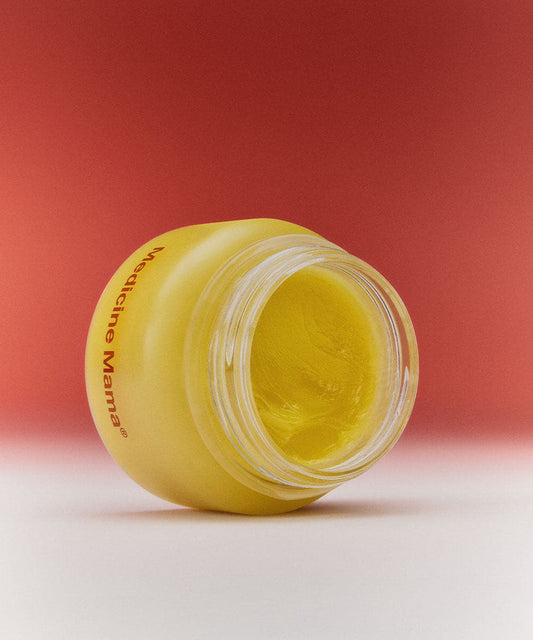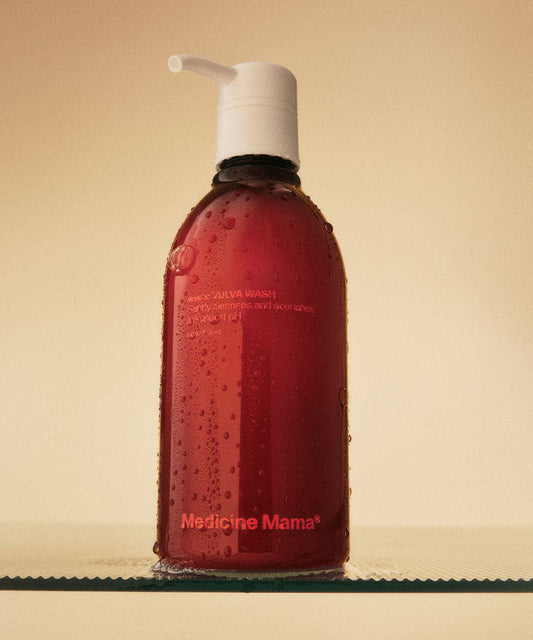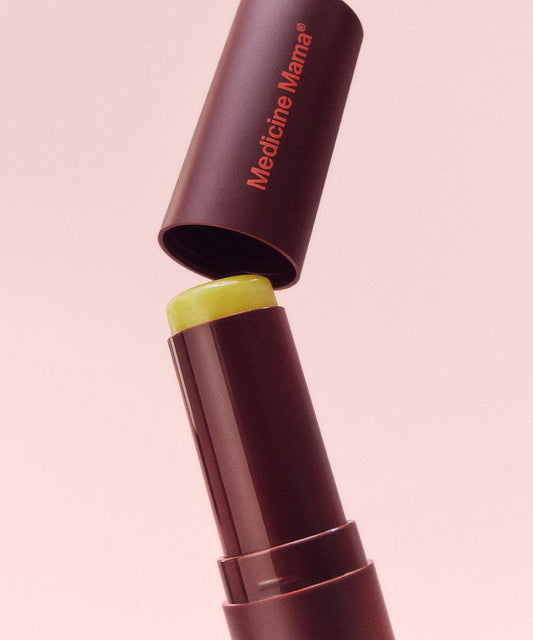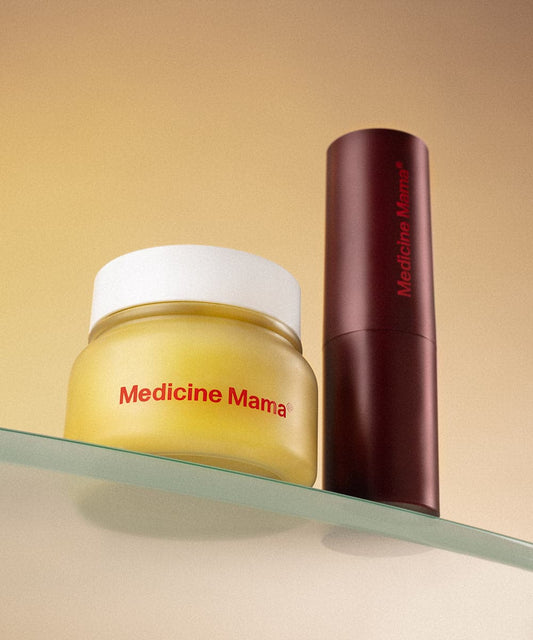Reviewed by | Dr. Clare Bertucio MD
Menopause is a natural part of aging, but it can bring about some unwelcome changes, including painful sex. If you're dealing with discomfort during intimacy, you're not alone, and there are solutions. As your body adjusts to these changes, it’s important to address them openly and find ways to manage the symptoms.
Many women experience significant improvements with the right approach, making sex comfortable and enjoyable once again. This article offers practical tips to alleviate pain and enhance your sexual well-being post-menopause.
By understanding the causes and implementing these tips, you can reclaim your sexual health and confidence.
What Is Menopause?
Menopause marks the end of a woman's menstrual cycle, typically occurring in your late 40s or early 50s. It’s diagnosed after you've gone 12 months without a menstrual period. The transition to menopause, known as perimenopause, can last several years and bring various symptoms like hot flashes, night sweats, mood swings, and vaginal dryness.
During menopause, the body produces less estrogen, a hormone that plays a key role in maintaining vaginal health. Lower estrogen levels lead to thinning and drying of the vaginal walls, which can result in discomfort during sex. But it can be a little more complicated than that, too, so let’s break it down.
Why You Might Experience Painful Sex After Menopause
The drop in estrogen levels after menopause is the main reason many women experience painful sex, known medically as dyspareunia. Reduced estrogen leads to decreased vaginal lubrication, thinning of the vaginal walls, and loss of elasticity, all of which can contribute to pain during intercourse. This hormonal shift can also affect the pH balance of the vagina, making it more susceptible to infections and irritation.
Additionally, psychological factors such as anxiety and stress, often exacerbated by the hormone changes you can experience after menopause, can also play a role. Conditions like urinary tract infections, pelvic floor disorders, and the use of certain medications can further complicate the situation. Chronic illnesses such as diabetes or autoimmune disorders can also impact vaginal health at any point in your life.
Let’s not focus on the negatives, however. Now that we’ve covered the basics, let’s dive into some simple ways to help relieve your pain and restore your sex life to its former glory — and, hopefully, beyond.
1. Use a Vulva Moisturizer
One of the most effective ways to combat vaginal dryness is by using a vulva moisturizer. Keeping the vulvar skin hydrated helps reduce dryness and discomfort, making sex more enjoyable.
As you search for moisturizers, look for organic, hormone-free options. You should also prioritize fragrance-free options with ingredients meant to nourish skin, such as organic oils, waxes, and even honey. Use moisturizer daily for hydration or whenever you need relief from dryness or discomfort.
2. Practice Regular Pelvic Floor Exercises
Strengthening your pelvic floor muscles can significantly improve blood flow to the vaginal area, enhancing elasticity and reducing pain during sex. Pelvic floor exercises, like Kegels, involve repeatedly contracting and relaxing the muscles that form part of the pelvic floor. These muscles support the bladder, uterus, and bowels, playing a crucial role in sexual function and overall pelvic health.
To perform Kegels, imagine you're trying to stop the flow of urine and hold that contraction for a few seconds before releasing. Start with a few repetitions a day and gradually increase as your muscles get stronger. You can do these exercises anywhere and anytime, making them an easy addition to your daily routine.
Consistent practice can lead to better control, increased sexual sensation, and less pain during sex. Incorporating pelvic floor exercises into your routine not only helps with painful sex but also improves bladder control and supports overall pelvic health.
3. Use a Gentle Cleanser
Maintaining good hygiene is crucial, but using harsh soaps or fragranced products can irritate sensitive vulvar skin, exacerbating dryness and discomfort. Opt for a gentle, fragrance-free cleanser to keep the area clean without causing irritation.
Dispense a quarter-sized amount into your hands or a soft sponge and apply it directly to the skin. Rinse clean with warm water. These washes are designed to moisturize intimate skin without foaming, respecting the delicate nature of your vulvar skin.
4. Talk to Your Doctor Consider Vaginal Estrogen Therapy
It’s important to talk with your doctor to make sure there is not a bigger issue going on. In this case, estrogen therapy or other solutions may be a fit.
Vaginal estrogen therapy can be a game-changer for many women experiencing painful sex after menopause. This treatment involves low-dose estrogen applied directly to the vaginal area, which can help restore moisture and elasticity. It works by replenishing the estrogen levels locally, directly targeting the symptoms of vaginal dryness and thinning of the vaginal walls.
There are various forms of vaginal estrogen, including creams, tablets, and rings. These treatments are generally considered safe and effective, but it's important to consult your healthcare provider to determine the best option for you. They can guide you on using these products correctly and monitor your progress.
Typically, these treatments are used daily initially and then reduced to a few times a week as symptoms improve. By restoring vaginal health, estrogen therapy can significantly reduce discomfort during sex, making it a valuable option for many women dealing with post-menopausal changes.
5. Use Lubricants During Sex
Lubricants can provide immediate relief by reducing friction during intercourse, making sex more comfortable and enjoyable. There are different types of lubricants available, including water-based, silicone-based, and oil-based options. Each type has its benefits and potential drawbacks, so it's important to find the one that works best for you.
When choosing a lubricant, consider your personal preference and any skin sensitivities you might have. Water-based lubricants are generally the safest and easiest to clean up, while silicone-based ones tend to last longer and provide a silkier feel.
Oil-based lubricants should be avoided with latex condoms as they can cause the material to break down and are also harder to wash off. Some lubricants also come with added ingredients like aloe vera or vitamin E for extra soothing and moisturizing effects.
Apply the lubricant generously to both your partner and yourself before sex. This simple step can make a big difference in your comfort level and overall sexual experience.
Don’t hesitate to reapply as needed throughout your intimate time to maintain comfort. Using lubricants reduces pain and enhances pleasure, making the experience more enjoyable for both partners.
6. Have Sex More Regularly
Maintaining regular sexual activity, whether through intercourse, self-stimulation, or using sexual aids, can help keep your vaginal tissues healthy. Regular activity increases blood flow to the area, which can enhance lubrication and elasticity.
The emotional benefits of staying sexually active are also significant. It can boost your mood, reduce stress, and strengthen your connection with your partner. Don’t be afraid to explore new ways to enjoy intimacy and keep the spark alive.
To be clear, though, this tip isn’t about forcing yourself to do something painful — communicate with your partner throughout your session. We’re sure you can find ways to relax and enjoy connecting, even if that doesn’t mean penetrative sex.
7. Prepare Your Skin for Grooming
Grooming can sometimes lead to irritation and ingrown hairs, which can exacerbate discomfort during sex. Preparing your skin properly before grooming can help you avoid these issues, which are uncomfortable enough on their own. But if you’re dealing with post-menopausal pain after sex, it can make it even worse.
You can look for sugar scrubs made for prepping skin for grooming and preventing ingrown hairs. Gentle exfoliating polishes can replenish dry skin and prepare it for bump-free grooming.
Prioritize Your Pleasure
Experiencing painful sex after menopause is a common issue, but it doesn't have to be a permanent one. By incorporating these tips into your routine, you can alleviate discomfort and improve your sexual health.
With these strategies and the right products, you can enjoy a fulfilling and comfortable sex life after menopause. Don’t hesitate to consult with healthcare professionals to tailor these tips to your specific needs and ensure the best possible outcomes for your sexual well-being.
Disclaimer: The information provided on this blog is for general informational and educational purposes only. All content, including text, images, graphics, and other material, is not intended to be a substitute for professional medical advice, diagnosis, or treatment.
Always seek the guidance of your physician or other qualified health professional with any questions you may have regarding a medical condition, treatment, or wellness program. Never disregard the advice of a medical professional or delay in seeking it because of something you have read on this website.
Sources:
The Causes And Treatment Of Pseudofolliculitis Barbae | National Library of Medicine
What Is Menopause? | National Institute on Aging
Why Is Sex After Menopause Sometimes More Painful? | Mayo Clinic
Kegel Exercises | National Institute of Diabetes and Digestive and Kidney Diseases



